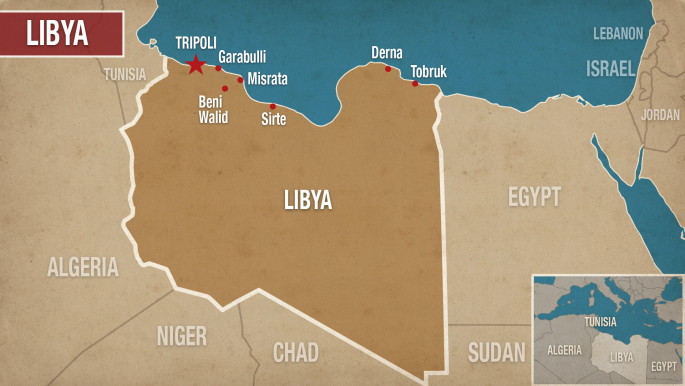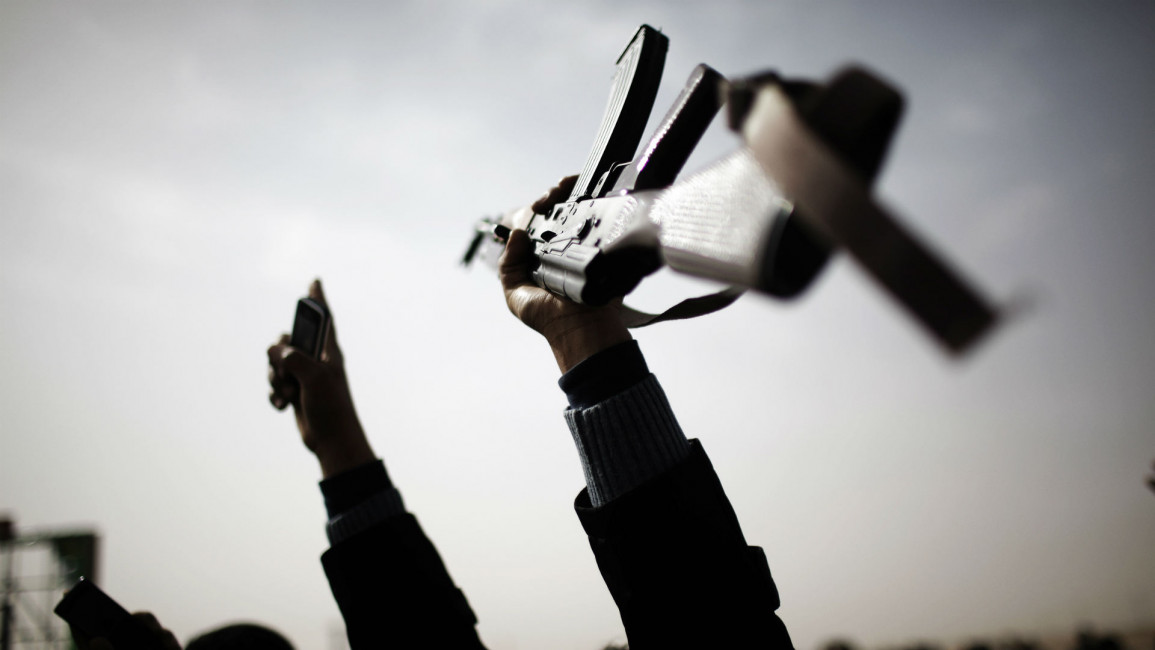
Libya's neighbours are obstructing its path to peace
Libya is a vast territory; third largest nation in Africa. Almost 90 percent of its land is uninhabited, and mostly desert, and it has the largest proven oil reserves in Africa, estimated at 49 billion barrels, and the fifth largest shale oil reserves in the world, estimated at 26 billion barrels.
Reserves of minerals, including iron and gold are also thought to be in abundance, despite the fact that they still remain largely untapped. Apart from Algeria - a major oil and gas producer - the other five neighbouring countries have very limited natural wealth and are considered largely to be weak economically, with high levels of unemployment and a very low level of income per capita.
It is in this context that the trajectory and dynamics of the relationship between Libya and its neighbours can be understood. Libya has long been a destination for millions of people from its neighbouring countries, Algeria aside, who are seeking work and good income from their resource rich neighbour with a low population.
But these neighbouring populations have legitimate concerns over the threats that an unstable and conflict-stricken Libya pose to their own security and economic well-being.
They believe that the lack of a strong central Libyan government imposing its authority on the whole of Libya's territory, including its borders, has resulted in a dangerous security vacuum.
Consequently, Libya has become a country of transit, not just for unregulated migration, but for extremist groups, organised crime and illegal arms trafficking, which in turn poses a major threat, especially to Tunisia, Algeria and Egypt.
 |
Egypt could have used its regional political clout to help broker a genuine political agreement |  |
However, some of Libya's neighbours have also been - directly or indirectly - contributing to the instability and raging conflict in Libya, especially in the last four years.
Egypt has been fuelling the conflict in Libya by backing the side of Khalifa Haftar, whom it sees as an ally against Islamist groups within Libya which Egypt considers a threat to its national security.
Since 2014, Egypt has provided Haftar's forces with "training and the delivery of all kinds of ammunition, weapons and military equipment, including attack helicopters and fighter jets". It has also carried out repeated air strikes, in aid of Haftar and his forces, against targets of his opponents in the city of Derna and elsewhere deep inside Libyan territory.
Read more: Libya's militia culture must be demobilised
Last July, Haftar declared his forces had "liberated" the city of Benghazi in the east of Libya after three years of fighting with Islamist groups there. That supposed liberation has certainly not stopped violence and conflict within the city today. Within the last few weeks at least two civilian massacres have taken place, and two explosions took place in mosques, killing and injuring dozens of worshipers.
Recent media reports confirmed by head of the Libyan parliament (HOR) Aqila Saleh suggest that Haftar is preparing to launch a major ground attack on the besieged city of Derna (in the east of Libya, some 250km from the Egyptian border) in coordination with Egyptian military forces.
 |
|
This supposedly imminent operation - if it takes place - could see Egyptian troops enter Libya in large numbers, and establish a type of security zone on Libyan soil, or even possibly attempt to isolate the whole city of Derna, with its population of over 100,000.
Such major military interference would enrage many Libyans, and other neighbouring countries, especially Algeria, which sees itself as the main counterbalance to any Egyptian territorial ambitions in Libya.
Egypt could have maintained a more impartial position towards the Libyan conflict, and kept an equal distance from all sides. It could have used its regional political clout to help broker a genuine political agreement in Libya.
However, Sisi's military regime saw Haftar as potential military strongman and ally, who could take political control of Libya and serve Egypt's interests best.
Haftar in control of Libya would serve Egypt economically, thanks to Libya's huge natural wealth, but also through a forceful purge of Islamist groups in Libya, specifically the Muslim Brotherhood, which the Egyptian regime sees as its main enemy.
 |
Both Algeria and Tunisia, Libya's neighbours to the west, adopted a strategy diametrically opposed to that of Egypt |  |
Both Algeria and Tunisia, Libya's neighbours to the west, adopted a strategy diametrically opposed to that of Egypt, and refrained from involvement through active support for one side or the other. They kept open diplomatic channels with all sides, often invited key players across the conflict divide for visits, and hosted dialogue meetings in order to encourage a political agreement and an end to the violent conflict.
Southern neighbours of Libya (Niger, Chad and Sudan) have a very reduced capacity to control their common borders with Libya. These borders are highly porous and people move across them with almost total freedom and ease.
Niger allows traffickers to be very active in smuggling both humans and drugs. Agadez town, not far from the Libyan border, is used as a hub for migrants from all over Africa on their way across Libya to Europe.
A report issued by a Geneva based research group last summer suggested that "hundreds of fighters from Chad and Sudan's Darfur region are feeding off instability in Libya".
These fighters are reportedly paid to fight for rival factions in the Libyan conflict. Both Chad and Sudan are accused of supporting opposing Libyan factions. It is estimated that some 1,500 Sudanese fighters, mainly from the Darfur region belonging to groups opposed to the Sudanese government, are fighting with Haftar forces.
Meanwhile, around 1,000 Chadian fighters from groups opposed to their government are fighting with the anti-Haftar forces. Both warring sides of the Libyan conflict constantly accuse each other of recruiting mercenaries from neighbouring African countries.
The fact that Chad and Sudan allow free access for insurgents - and potentially arms - crossing the border to Libya, shows both countries as pursuing irresponsible policies that fuel the conflict in Libya.
 |
Haftar in control of Libya would serve Egypt economically |  |
On 9 February 2018, the UN Security Council committee on Libya was briefed by its panel of experts on an interim report expected to be made fully public in the near future.
The report is believed to contain several recommendations to the UN committee for follow up action, and may well conclude that neighbouring countries have been contributing to instability in Libya, hindering the path to a political agreement.
There is a certain irony in the complaints of Libya's neighbours, who argue that since the revolution it has posed a major security threat to them. For in reality, they themselves have been actively contributing to creating such a threat.
Regional interference in Libya, especially from close neighbouring countries, has been detrimental to efforts to stabilise the country, and has contributed to prolonging a violent conflict, causing Libyan citizens unnecessary bloodshed and suffering.
Guma El-Gamaty is a Libyan academic and politician who heads the Taghyeer Party in Libya and a member of the UN-backed Libyan political dialogue process.
Follow him on Twitter: @Guma_el_gamaty
Opinions expressed in this article remain those of the author and do not necessarily represent those of The New Arab




